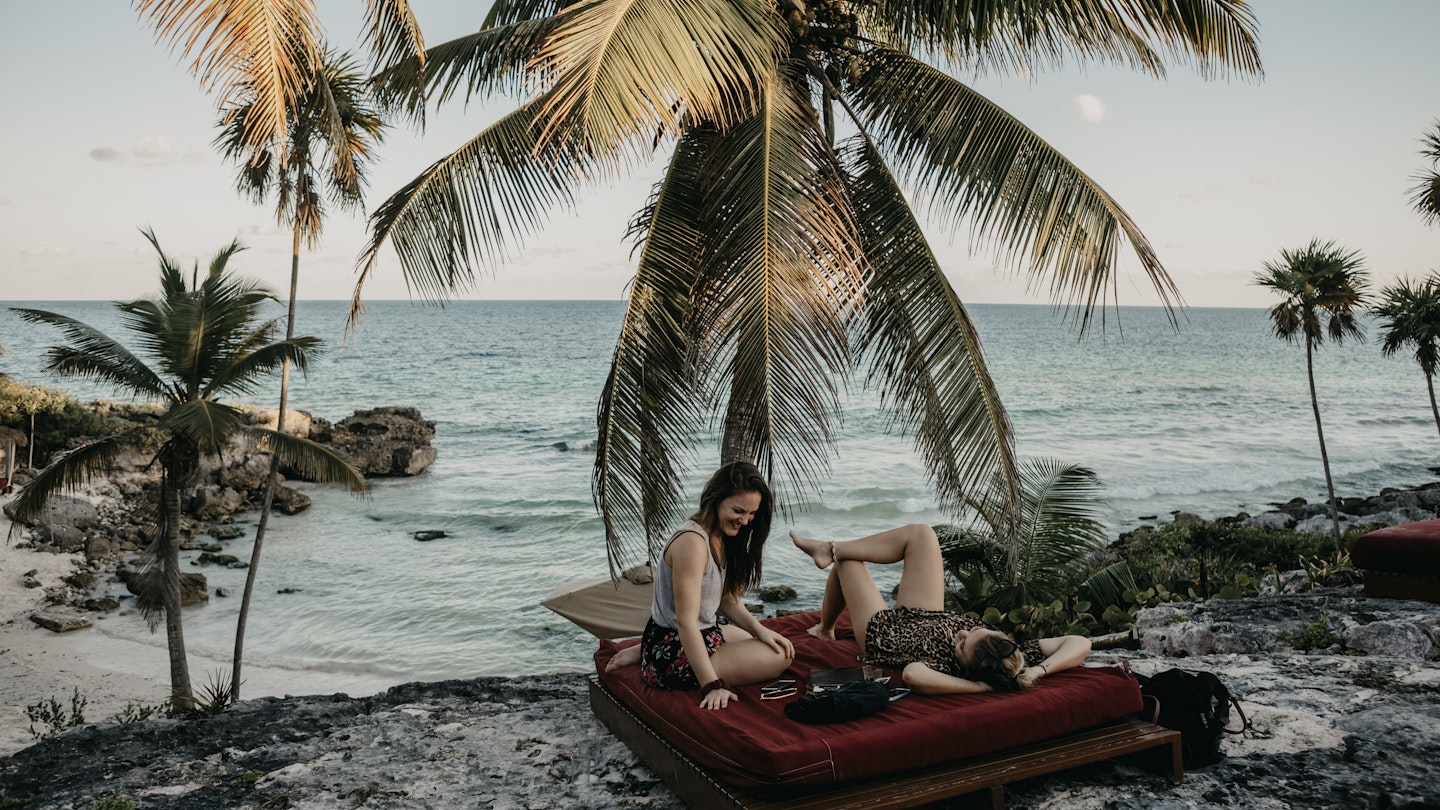
“Everyone’s in Tulum right now”. This phrase has become a common observation since the onset of the pandemic. As a travel writer reflecting during a cold, rainy day in locked-down England, I scroll through Instagram, puzzled by the abundance of travel influencers appearing to live the dream in Mexico.
Pandemic fatigue has significantly impacted many; however, it leads to the question: Why aren’t some travel influencers experiencing the same lockdowns as their audiences?
Are travel influencers working or just “showing off”?
The debate around pandemic travel emerged heatedly in the United Kingdom, particularly after the Home Secretary criticized travel influencers for “showing off” in Dubai while the country remained in lockdown. Many high-profile celebrity influencers have attempted to justify their travels to locations such as Dubai or Tulum for work purposes. This complex discussion continues in travel blogging circles, raising the question: Are they merely “showing off” or do they have legitimate reasons for traveling during this time?
Chloe Gunning, a professional travel blogger and founder of Wanderlust Chloe, acknowledges the difficulty in answering this question. She notes, “This is a tricky topic as lots of people are now considered travel influencers, from glossy reality show contestants to hard-nosed travel journalists.” Chloe is firm in her stance, stating, “No, I don’t think it’s okay to travel for work if your work is simply to get a pretty picture for Instagram.”
As travel content creators rely on their work for income, they face challenging decisions. Chloe chose to stay in the UK during the pandemic, using the time to create content she had long wanted to write but hadn’t previously had the opportunity. Additionally, she and her partner launched new projects, including a travel blog focused on Great Britain and an Etsy store showcasing their travel photography.
Sarah Richard, founder of the online community Girls That Scuba, also remained in the UK. She expressed concern about the ethical implications of travel during a global pandemic, stating, “I’m sure there are ways it can be safe to travel, but I don’t think morally it is the right thing if there is a chance they can spread the virus.”
Sarah has shifted her focus away from international travel, concentrating on developing online courses and selling scuba gear to her community. Nonetheless, she points out that there can be “blurred lines” around what constitutes “traveling for work” in the current context. She argues that if influencers can inspire their audience from home, traveling solely to ‘inspire’ would be unjustifiable. However, if individuals have a financial need, it alters the equation.
Alex Reynolds, from the blog Lost With Purpose, has been vocal regarding the behavior of travel influencers during the pandemic. He emphasizes, “If someone is invited to a specific destination, that’s work. However, the ethical questions about promoting travel now are very complex. Traveling simply to create content not deemed essential is hardly justifiable in today’s climate.”
The challenge lies in responsibility, not travel itself
Initially, I had just arrived in Oaxaca, Mexico, anticipating the possibility of a digital nomad lifestyle. However, as the pandemic evolved, borders began closing, and travel insurance policies changed. This uncertainty compelled me to make the difficult choice to return home, catching the last flight out of Cancun.
The temptation to return to Mexico remains strong, especially with its open borders. However, this situation necessitates careful consideration of public health and safety guidelines. Alex reminds us that the actual issue is not traveling per se, but the failure to adhere to necessary precautions. “By now, we know that travel can be relatively safe if people take responsibility seriously: quarantining, wearing masks as advised, and avoiding crowded spaces.”
My decision to return from Mexico was partly motivated by a desire not to overburden local resources, a caution that was unexpectedly validated when I contracted COVID-19 shortly after. Unfortunately, several popular destinations, including Mexico, currently lack the infrastructure necessary to manage the pandemic responsibly, raising concerns as the country grapples with high tourism numbers despite significant health risks.

So, should travel influencers promote travel to places like Mexico that are struggling with the pandemic? My perspective is that they should refrain from doing so.
Nevertheless, it is essential to consider the economic impact of travel on destinations reliant on tourism. Chloe observes, “Many destinations have faced decimated economies due to the lack of tourism in the past year.” However, it’s crucial to recognize that the landscape of travel has shifted irrevocably. As travel content creators, adaptation is essential even when certain locations, like Tulum, appear resilient.
As Alex poses the question, “Are influencers willing to sacrifice aesthetic appeal for public responsibility? This could be a matter of life or death for those in the tourism sector.” While Sarah acknowledges the challenges of maintaining relevance and revenue as a travel blogger, she believes that opportunities for travel will eventually return.




